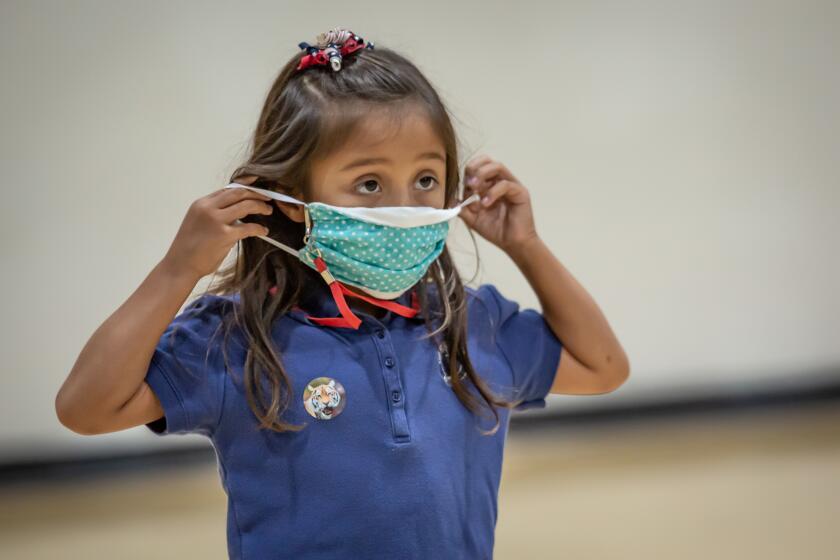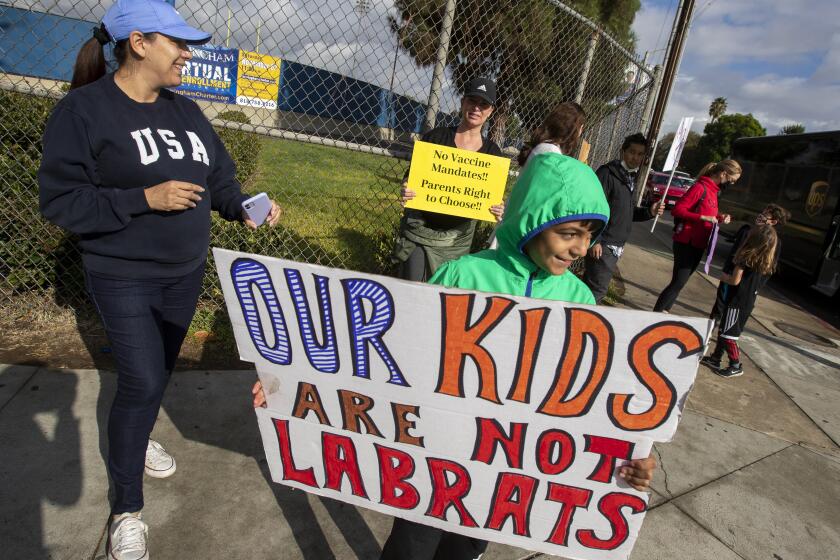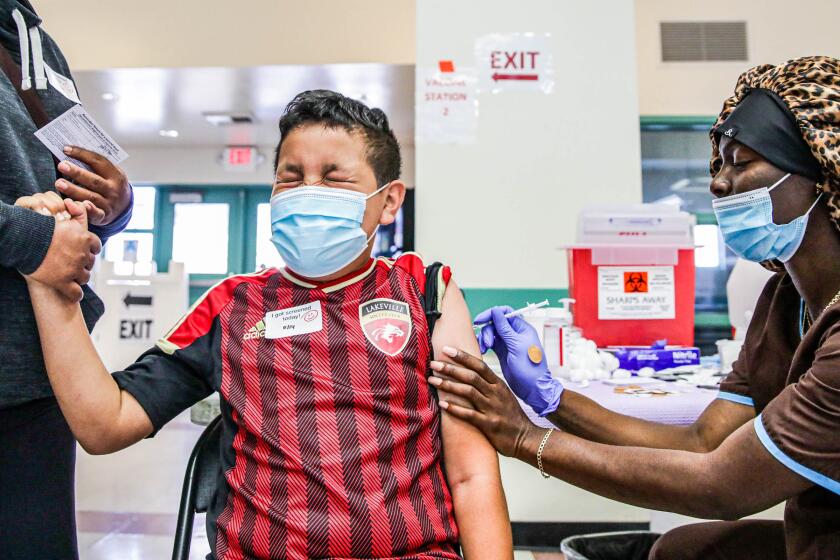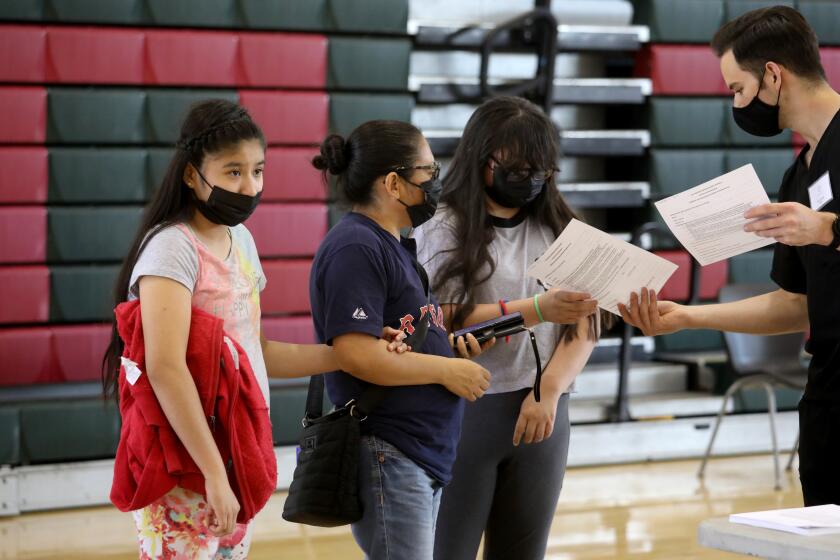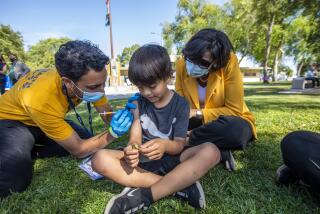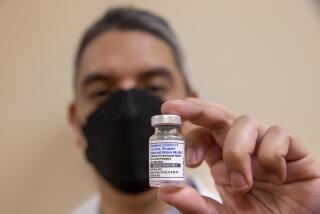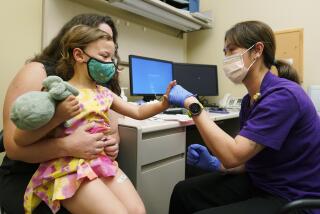White House details plans to vaccinate 28 million children ages 5 to 11
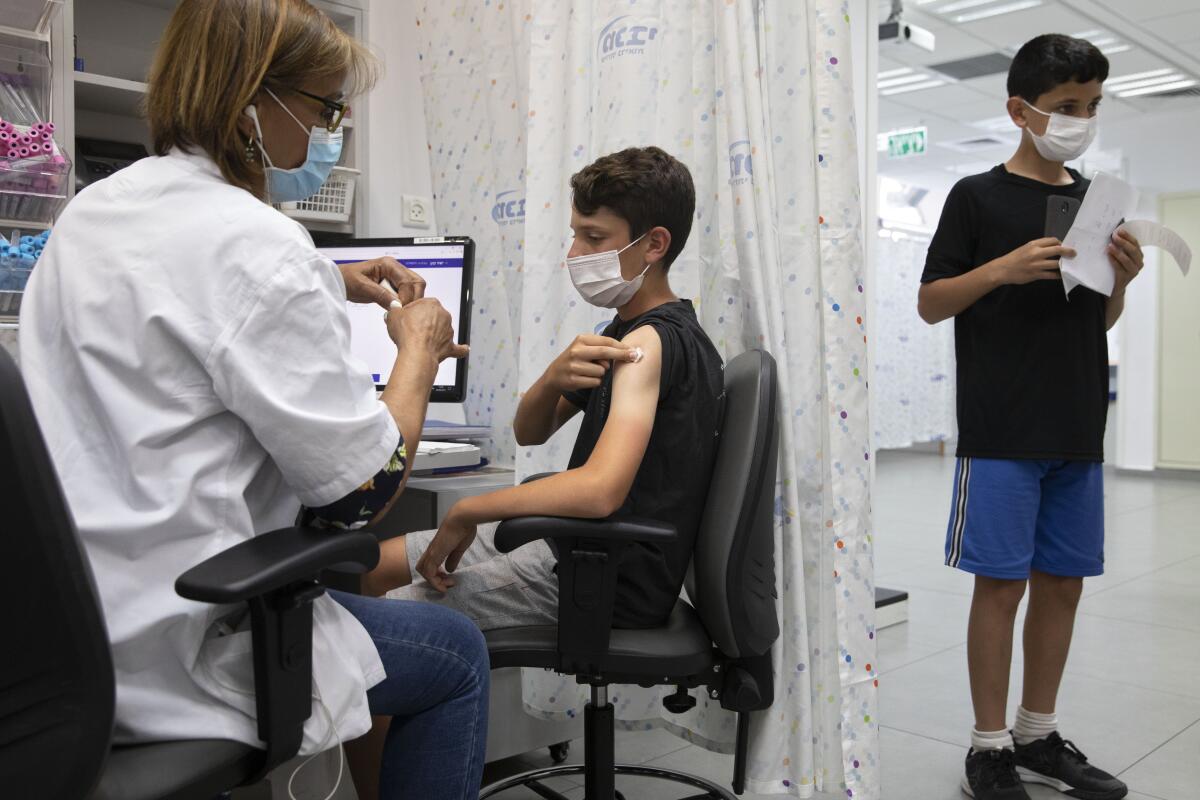
Children ages 5 to 11 will soon be able to get a COVID-19 shot at their pediatrician’s office, local pharmacy and potentially even their school, the White House said Wednesday as it detailed plans for the expected authorization of the Pfizer vaccine for younger children in a matter of weeks.
Federal regulators will meet over the next two weeks to weigh the benefits of giving shots to kids, after lengthy studies meant to ensure the safety of the vaccines.
Within hours of formal authorization, expected to come after the Centers for Disease Control and Prevention advisory meeting scheduled for Nov. 2-3, doses will begin shipping to providers across the country, along with smaller needles necessary for injecting young kids. The doses should be ready within days to go into the arms of kids on a wide scale.
About 15 million doses will be shipped to providers across the country in the first week after approval, the White House said.
“We’re completing the operational planning to ensure vaccinations for kids ages 5-11 are available, easy and convenient,” White House COVID-19 coordinator Jeff Zients said Wednesday. “We’re going to be ready, pending the FDA and CDC decision.”
The Pfizer-BioNTech vaccine requires two doses spaced three weeks apart and a two-week wait for full protection to kick in, meaning that kids who get their first shot within a couple of weeks of the expected approval in early November can be fully vaccinated by Christmas.
When can parents expect their kids to be eligible for a COVID vaccine? Here’s the latest.
Some parents can hardly wait.
Dr. Sterling Ransone said his rural Deltaville, Va., office is already getting calls from people asking for appointments for their children and saying, “I want my shot now.”
“Judging by the number of calls, I think we’re going to be slammed for the first several weeks,” said Ransone, president of the American Academy of Family Physicians.
Justin Shady, a film and TV writer in Chicago, said his 6-year-old daughter, Grey, got nervous when he told her she would be getting the shots soon. But he is bribing her with a trip to Disney World, and “she’s all in.”
On Monday, some parents kept their children home from school to protest the pending statewide student vaccination mandate.
The family likes to travel, and “we really just want to get back in the swing of seeing the world,” Shady said.
As for youngsters under 5, Pfizer and Moderna are studying the use of their vaccines in children down to 6 months old, with results expected later in the year.
The Biden administration said that the nationwide campaign to extend vaccinations to the school-going cohort would not look like the start of the country’s vaccine rollout 10 months ago, when scarcity of doses and capacity issues meant a painstaking wait for many Americans. The country now has ample supplies of the Pfizer shot to vaccinate the roughly 28 million kids who should soon be eligible, White House officials said, adding that the administration has been working for months to ensure widespread availability of shots once approved.
More than 25,000 pediatricians and primary care providers have already signed on to administer COVID-19 vaccine shots to kids, the White House said, in addition to the tens of thousands of retail pharmacies that are already administering shots to adults. Hundreds of school- and community-based clinics will also be funded and supported by the Federal Emergency Management Agency to help speed putting shots into arms.
A growing contingent of medical experts is questioning the conventional wisdom that healthy children should get COVID-19 shots as soon as possible.
The White House is also preparing to mobilize a stepped-up campaign to educate parents and children about the safety of the shots and the ease of getting them. As has been the case for adult vaccinations, the administration believes trusted messengers — educators, doctors and community leaders — will be vital to encouraging vaccinations.
Dr. Lisa Reed of MAHEC, a western North Carolina safety-net provider that serves patients from rural Appalachia and more urban communities such as the tourist town of Asheville, said it would take effort to get some families on board.
Reed said she lives “in a community that has a lot of vaccine hesitancy, unfortunately.”
“Some have lower health literacy or belong to ethnic groups that are more hesitant in general” because of a history of mistrust, she said. And Asheville, she said, has a sizable population of well-educated adults who are longtime vaccine skeptics.
There’s something terribly wrong when parents refuse to get their children vaccinated against a deadly, highly contagious disease.
While children run a lower risk than older people of getting seriously ill from COVID-19, at least 637 people age 18 or younger have died from the disease in the U.S., according to the CDC. Six million U.S. children have been infected, 1 million of them since early September amid the spread of the more contagious Delta variant, the American Academy of Pediatrics says.
Health officials believe that expanding the vaccine drive will not only curb the alarming number of infections in children but also reduce the spread of the coronavirus to vulnerable adults. It could also help schools stay open and youngsters get back on track academically, and contribute to the nation’s broader recovery from the pandemic.
“COVID has also disrupted our kids’ lives. It’s made school harder, it’s disrupted their ability to see friends and family, it’s made youth sports more challenging,” Dr. Vivek Murthy, the U.S. surgeon general, told NBC on Wednesday. “Getting our kids vaccinated, we have the prospect of protecting them, but also getting all of those activities back that are so important to our children.”
Murthy said the administration, which is promoting employer vaccine mandates for adults, is leaving the question of requirements for schools to local and state officials, but called them “reasonable.”
“You’ve seen already some localities and states talk about vaccine requirements for kids,” he said on NBC’s “Today.” “And I think it’s a reasonable thing to consider to get those vaccination rates high. And it’s also consistent with what we’ve done for other childhood vaccines, like measles, mumps, polio.”
The U.S. has purchased 65 million doses of the Pfizer pediatric shot — expected to be one third the dosage for adults and adolescents — according to officials. They will ship in smaller packages of about 100 doses each, so that more providers can deliver them, and they can be stored for up to 10 weeks at standard refrigeration temperatures.
About 219 million Americans aged 12 and up, or 66% of the total population, have received a COVID-19 shot, and nearly 190 million are fully vaccinated.
More to Read
Start your day right
Sign up for Essential California for news, features and recommendations from the L.A. Times and beyond in your inbox six days a week.
You may occasionally receive promotional content from the Los Angeles Times.
